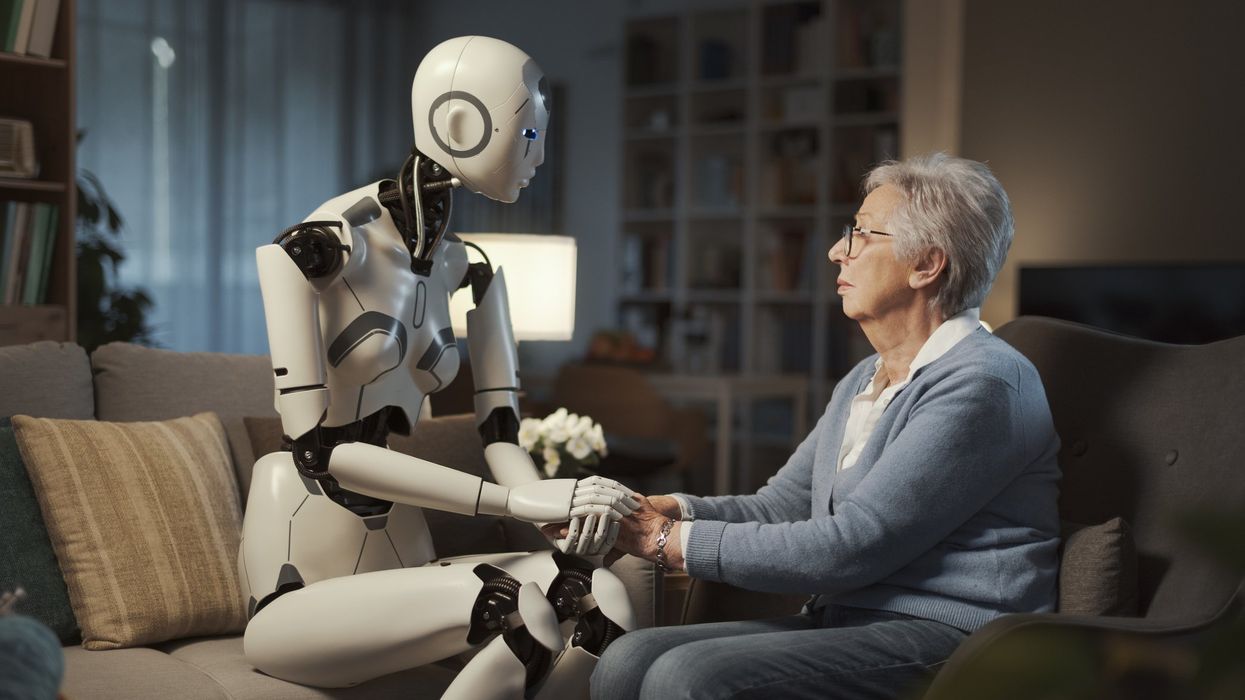
demaerre/Getty

The 2020s have seen unprecedented acceleration in the sophistication of artificial intelligence, thanks to the rise of large language model technology. These machines can perform a wide range of tasks once thought to be solvable only by humans: write stories, create art from text descriptions, and solve complex tasks and problems they were not trained to handle.
We posed two questions to six AI experts: James Poulos, roon, Robin Hanson, Niklas Blanchard, Max Anton Brewer, and Anton Troynikov. —Eds.
1. What year do you predict, with 50% confidence, that a machine will have artificial general intelligence — that is, when will it match or exceed most humans in every learning, reasoning, or intellectual domain?
2. What changes to society will this effect within five years of occurring?
AGI probably won’t be here until 2150. When it finally arrives, economic growth will become astronomical. Back in 1983, as a 25-year-old physics grad student, I read about new dramatic demos in artificial intelligence. I thought, “Wow, I didn’t expect that; AI must be getting near where it can exceed humans at most thinking!” So I quit school and headed to Silicon Valley, where I did AI research for nine years.
Needless to say, I was quite wrong. It turns out that these sorts of demos have appeared every decade since 1950. We see more such demos today, and once again, many see human-level AI as just around the corner. But I’ve learned my lesson; we are quite bad at judging distances in this terrain. Our minds feel simple to us, yet contain far more complexity than we can see by introspection.
Today if we look at who is paid how much for their contributions to the world economy, human workers are paid far more than machines, machines far more than computers, and computers far more than AI. Once that AI fraction gets high, it will be time to worry about AI displacing humans. But this AI fraction has long been very low and has been rising very slowly.
This is why my median-estimate date for the creation of a human-level AI is roughly 2150. I have wide uncertainty around that, but I’m pretty sure it won’t be in the next thirty years. And I’d be happy to bet on that.
However, I’m also pretty sure that once we have human-level AI as cheap to rent as human workers, and in an open economy, our world will change more in the following five years than it has in the last three hundred. Instead of doubling every fifteen years as it does now, the world economy could double every few months or even faster. So over a factor of 60 times faster!
Why? Because today a typical factory produces as much value in a few months as it costs to build. So if factories could make everything needed to make and run factories, we could double the economy every few months today. The reason we can’t do this is that we can’t make humans in factories; humans instead take decades to double.
But once we can make human-level AIs in factories run by AIs, then factories can make everything they need to double, and so the whole economy can double every few months. Or maybe even faster, once we optimize factories for this new world. Sure, eventually we might run into limits of energy or raw materials. But an AI economy should have plenty of room to grow before it hits such limits. Remember, it won’t need nature, so it won’t be limited by environmental damage.
The nature of this new AI economy would depend a lot on the kind of AIs it contains. They might be the kind of LLM-based AIs whose demos are making the news today, like the writing generator GPT-3 or image generator DALL-E. But they also might be far more human-like brain emulations, as I discuss in my book "The Age of Em: Work, Love, and Life when Robots Rule the Earth." Their world is strange but contains much more of what most of us would count as human value. And my guess is that emulation-based AI is a bit more likely than LLM-based AI to be the first to achieve human-level machine intelligence.
Robin Hanson